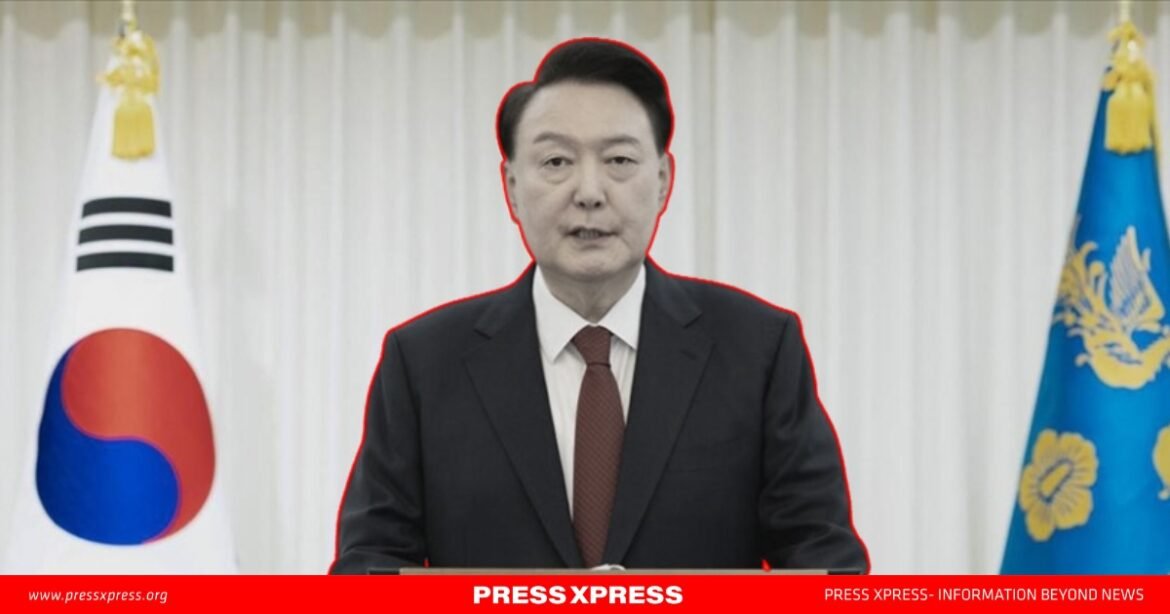In an unprecedented move, a South Korean court has approved an arrest warrant for President Yoon Suk Yeol, the embattled leader who has plunged the nation into political turmoil with his shocking decision to declare martial law nearly a month ago.
This marks the first time in South Korea’s history that a sitting president has faced an arrest warrant. The decision by the Seoul Western District Court on Tuesday sets the stage for a dramatic confrontation between Yoon and investigators, coinciding with explosive new revelations about the chaotic night he attempted to dissolve parliament.
A Tumultuous Downfall
Yoon, who was stripped of his presidential powers earlier this month after a parliamentary impeachment vote, has been accused of abuse of authority and orchestrating a rebellion. The impeachment followed backlash from lawmakers, including members of his own ruling party, over his refusal to step down after issuing the controversial December 3 martial law decree.
South Korea’s anti-corruption agency confirmed that Yoon had ignored three summonses from investigators in recent weeks. His defiance triggered a request for the arrest warrant on Monday, which was subsequently granted. Yoon now faces allegations of leading an insurrection, a charge punishable by life imprisonment or even the death penalty.
Yoon’s lawyer, Yoon Kab-keun, condemned the warrant as “illegal and invalid,” arguing that the request was made by an unauthorized agency and lacked transparency.
Martial Law and Political Chaos
The arrest warrant intensifies scrutiny on Yoon’s actions during the six hours leading up to the rescindment of his martial law decree. According to prosecution documents, Yoon allegedly ordered military personnel to force their way into the National Assembly, even instructing them to use firearms if necessary.
“Break down the doors and drag them out,” Yoon allegedly told military leaders, according to a prosecution summary. Lawmakers, scrambling to block the decree, barricaded themselves in the parliamentary chamber using furniture to delay the soldiers’ advance. The decree was overturned in the early hours of December 4 after 190 out of 300 lawmakers voted against it, prompting the military to retreat.
The prosecution’s report also claims that Yoon had vowed to declare martial law multiple times if necessary. Former Defense Minister Kim Yong-hyun, arrested earlier this month, has been identified as a key figure in the alleged operation to detain opposition leaders and government officials, with evidence including weapons and restraints reportedly confiscated from soldiers.
Shockwaves
The martial law announcement sent shockwaves across South Korea, evoking memories of the country’s turbulent history with military rule. Thousands gathered outside the parliamentary building in Seoul, demanding answers and fearing for the future of South Korea’s democracy.
As Yoon awaits a trial in the Constitutional Court to determine whether he will be permanently removed from office, the nation remains mired in uncertainty. The court held its first pretrial hearing on December 27, with Yoon absent. The nine-member court, currently operating with only six justices due to unfilled vacancies, has promised to prioritize the case, but political gridlock complicates the appointment process.
A Nation in Crisis
The political crisis deepened last week when parliament impeached Prime Minister Han Duck-soo, who had been serving as acting president, over his failure to expedite the appointment of Constitutional Court justices. Han defended his decision, insisting that ruling and opposition parties must reach a consensus before appointments can proceed.
Han’s impeachment has left South Korea under the interim leadership of Choi Sang-mok, who now faces the dual challenges of navigating a fractured political landscape and leading a nation reeling from one of its worst aviation disasters in decades. On Sunday, a Jeju Air flight carrying 181 people crash-landed, leaving all but two onboard dead.
With the country’s democracy at a crossroads and public trust in leadership eroding, South Korea braces for the next chapter in its unfolding political drama.


